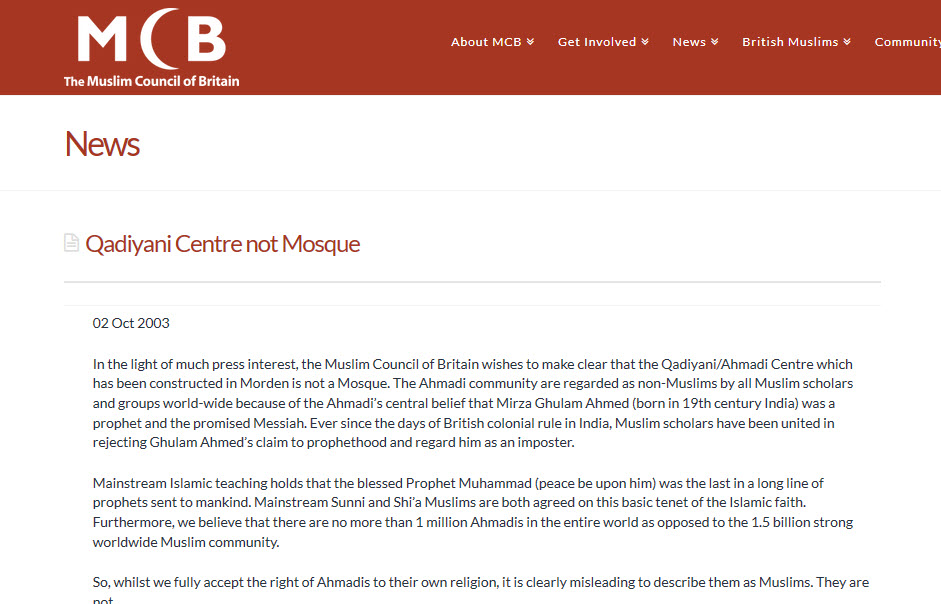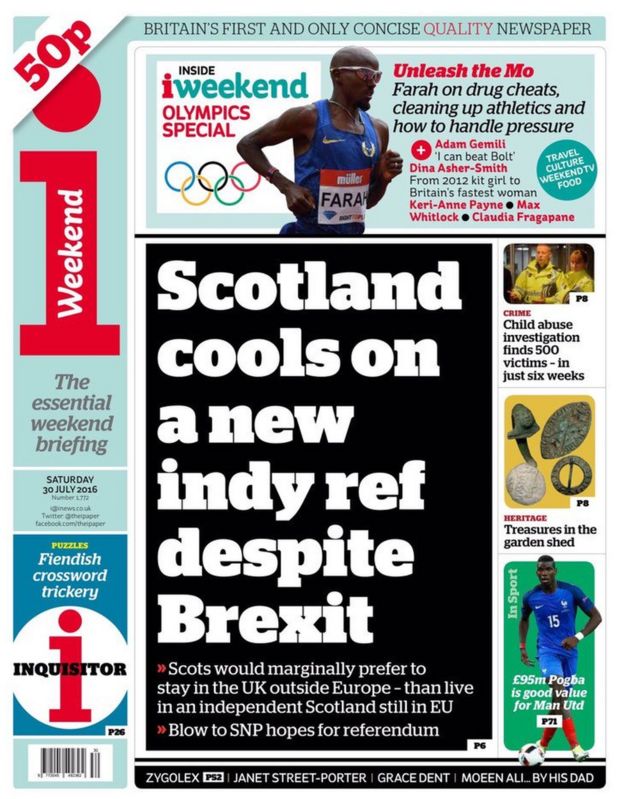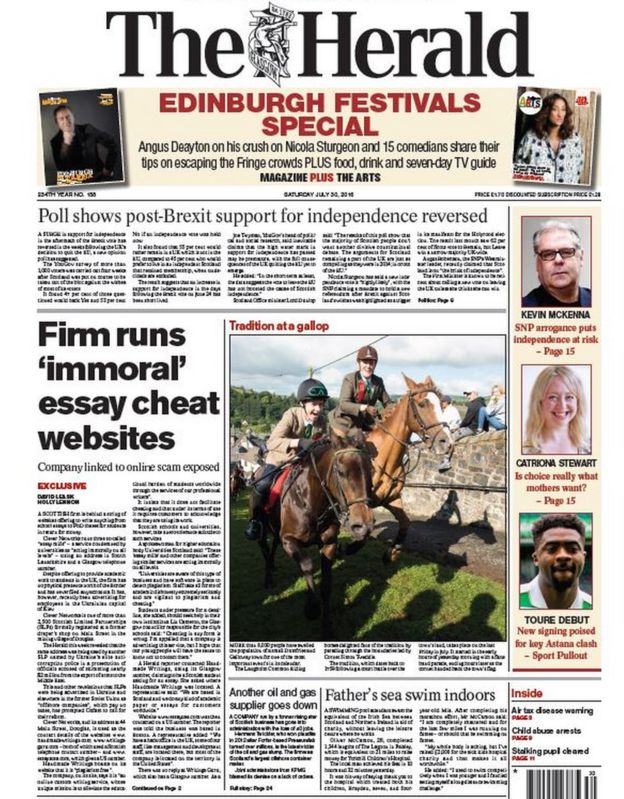Poor little Ali Khan, aged 6, and a half. The BBC found the poor young lad sobbing inconsolably in an East London street not far from their office from which they run ‘TellAuntie’, a goto service for Muslims who feel hard done by in life and want to blame it on the Kufar. The BBC is happy to oblige….a butterfly flaps its wings in far off Japan and the effects on a Muslim in East London can be terrible…disenchantment, disadvantage, disengagement, disaffection..terrible, terrible effects…but the BBC is there to gather the evidence, analyse it and then conclude that Muslims are under siege and that they must be allowed to live their lives as Muslims free from the liberal oppression that stops them following their religious teachings on Jews, Women and non-believers.
What of poor little Ali? Oh, that was Brexit that made him cry. A trip to the sweet shop with delighted expectations only to have them dashed by the harsh reality of Brexit’s economic downturn. He went in happy knowing he had the pennies to buy some chews only to come out empty handed and disappointed as the plunging Pound meant his favourite sweets were now out of reach, beyond his meagre means. The Brexiteers have betrayed the young. The bastards.
Still its not only young Ali Khan that is suffering….Barclays is too. Earlier Lloyds announced they were shutting up shop and the BBC began the day saying this was a result of changing consumer practices and an efficiency drive by Lloyds with a warning that maybe Brexit might have an effect in the future…that morphed later in the day into a singular story that Lloyds was closing down its operations because of Brexit.
Barclays was reported as also suffering from Brexit...the BBC again deciding that Brexit was the main subject of debate in its report…it starts with a quick nod towards the real reasons Barclays’ profits fell and then gets on to what the BBC want to talk about….
Commenting on the impact of Britain’s vote to leave the European Union, Jes Staley, who became chief executive last year, said he had no plans to alter the bank’s strategy of selling parts of the business and strengthening its retail and investment banking operations.
He said: “We remain confident that it is the right plan for Barclays, and see no reason to adjust it, or the pace of delivery, in light of the vote by the UK last month to exit the EU.”
However, the bank set out a number of risks it now faces, which include possible changes to “passporting” rights that allows the bank to operate across the EU.
It also it faces uncertainty over whether there will be any changes to freedom of employee movement, which would “impact Barclays’ access to the EU talent pool” as well as “decisions on hiring from the EU of critical roles”.
I like this ‘analysis’ by the BBC…..it has trawled the ‘small print’ and made its own intepretation to suit:
Analysis: Dominic O’Connell, BBC Today business presenter
While Jes Staley did not make the blunt Brexit warning made yesterday by his opposite number of Lloyds Banking Group, Antonio Horta Orsorio, the fine print of the Barclays statement makes plain its concerns.
Trouble is back in April the BBC was reporting this…
Barclays has reported a 25% drop in profits for the first quarter of the year, dragged down by the performance of divisions it plans to sell off.
Barclays warned last month that its first quarter would be weaker than last year due to turbulent market conditions and a “particularly strong” March 2015.
Similarly the BBC is reporting that Foxton’s have been losing money due to Brexit and the London housing market plunging….
Foxtons estate agency profits tumble amid Brexit vote
High-profile London estate agency Foxtons has announced a 42% fall in profits, blaming uncertainty around the EU referendum for the fall.
After the sensationalised headline its only half way down the report that you start to get the qualifications and get outs…all is not half as bad as the BBC’s headline suggests…and Brexit is by no means the main culprit.
Trouble is…last June, 2015, the BBC were reporting this:
House prices in the smartest parts of London have fallen by up to 22% since last Autumn, according to the property services group LSL.
In Westminster it claimed there had been a fall of 22% between a peak in November and the end of May.
It blamed the fall on the new stamp duty regime, introduced in December, which penalises expensive properties.
As we have noted before the BBC has a tendency to isolate the UK economy and to associate any downturn with Brexit completely ignoring that fact that the US economy is pretty much mirroring ours…and yet they have no Brexit…here’s the latest from over there….
The US economy grew at a much slower pace than expected in the second quarter and GDP was revised down in the first three months of the year.
The world’s largest economy grew at an annual rate of 1.2% in the three months to June, far below forecasts of 2.6%,
Growth for the first quarter was revised down from 1.1% to 0.8%.
If you want a far more balanced look at the UK post Brexit you couldn’t go far wrong by looking at the Spectator’s editorial:
It is dawning on all but the most stubborn Remainers that the world still wants to do business with the UK
Since the referendum, these anticipations of doom have continued. It is rather strange to watch. Encouraging economic news — the increase in high-street spending, the buoyant demand for jobs through recruitment agencies — is brushed aside. But the surveys about sentiment, which are more negative, are being seized upon as proof of the Remain side being right all along. The Brexit vote might have passed, but the debate goes on: its advocates looking for signs of optimism, and its opponents muttering about ‘hard Brexit’ and almost willing economic collapse.
Far from retreating into isolation, the UK economy now looks more open than ever. It is gradually dawning on all but the most stubborn in the Remain camp that the world still wants to do business with an independent UK — and that, freed from having to tag along with EU trade deals, this country is now able to negotiate mutually favourable arrangements with fast-growing economies such as India and China. Meanwhile, the EU’s problems continue. Standard and Poor’s, one of the world’s top credit ratings agencies, warned recently that the EU is ‘unsustainable in its current form’.
This is precisely the concern that persuaded 52 per cent of Brits that our long-term future is best served outside the EU.
Brexit is neither an economic drag nor a stimulus: it is simply the removal of a constraint. What Britain now goes on to achieve depends entirely on the vision and ambition of those in power. Politicians and businesses should snap out of their sulk, and see Brexit for what it is: the greatest opportunity ever handed to a government by an electorate.
Confidence in business is all…it leads to investment, new jobs, training and a vigour to succeed…the BBC does everything it can to undermine that confidence in the UK as it paints a picture of doom and gloom, a picture of a UK destined to be an economic basketcase left on the sidelines of history. The BBC’s narrative is one that does enormous damage to the UK just as its pro-Islamic terrorist, anti-Israel, anti-Western, anti-the Union, pro-mass immigration narratives create a future that can only be one of conflict and destruction as nation states are broken up and mini-states arise governed by whoever is the strongest. The BBC’s naive ‘good intentions’ lead to a Europe that descends into the hell of Somalia run by warlords and religious fanatics.
The government’s own predictions suggest that is a case scenario that is highly likely as immigration destroys homogentiy, loyalty, trust, co-operation and the rule of law.
The best course of action for peace and economic stability would be to close down the BBC and sack all those naive simpletons who work there.





